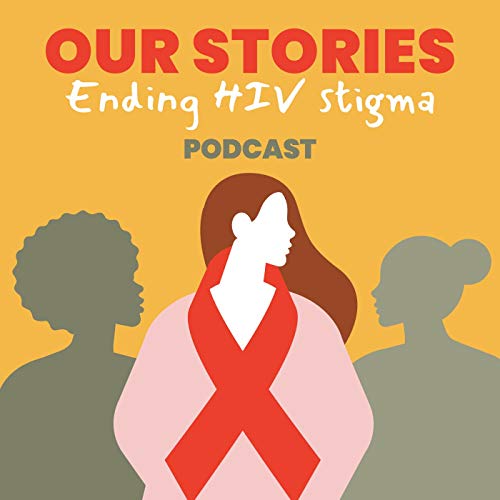Sarah Feagan has been living with HIV for 12 years. Her story begins in Melbourne. As a troubled teen, Sarah left home and her youth became a rollercoaster of homelessness, and drugs, which evolved into a bohemian life of self-discovery. After falling in love with a partner who didn’t know their status, later Sarah was diagnosed with HIV at 21, but while effective treatments were available, this was not enough and stigma nearly killed her. Today, Sarah is an HIV peer navigator and one of Australia’s most dynamic leaders in HIV advocacy, especially for women. TRANSCRIPTEPISODE 4: SARAH FEAGAN’S STORYUploaded: 13/10/2020 Heather EllisHi, I'm Heather Ellis your host on our stories, ending HIV stigma, a podcast by women living with HIV, where we share our stories of our diverse lives and challenged the myths and stereotypes that feed HIV stigma are stories as part of the women and HIV tell the story project made possible by Gilead Sciences and produced by Positive Women Victoria in Australia. Sarah Feagan has been living with HIV for 12 years. Her story begins in Melbourne. As a troubled tee, Sarah left home at 14 and her youth became a roller coaster of homelessness, and drugs, which evolved into a bohemian life of self-discovery. After falling in love with a partner who didn't know their status. Later, Sarah was diagnosed with HIV. But while effective treatments were available. This was not enough and stigma nearly killed her. Today. Sarah is a Peer Navigator and one of Australia's most dynamic leaders in HIV efficacy, especially for women. Welcome, Sarah. Sarah FeaganThank you so much. Hello. Thanks for having me. And thanks for a beautiful introduction. Heather EllisYou're such an inspiration. I want to start by asking as a teenager you were living on and off the streets of Melbourne. And this is often a lifestyle that is termed the University of Life. What were some of your learning experiences that made you the person you are today? Sarah FeaganYeah, I think being on the streets, you know, and that comes in different forms as well. Sometimes you sleeping rough sometimes, you're couch-surfing. But you really feel like you're at the whim of other people. And I think though that can be a really good thing and really bad thing because it can teach you about how the kindness of strangers or the gentleness of other people but it can also teach you the realities of, I guess, how cruel and how bad people can be as well and I was really lucky that during my time, when I was homeless that I had really good people that did help me and I have to say that there would have been more positive experiences, than negative ones. Heather EllisYou were telling me your parents stood by you during those years? S what would be your advice to other parents who might have teenagers going through a similar situation? Sarah FeaganMy parents, a shout out to those beautiful humans, I put them through and back and, you know, at 14, you don't know, I thought I knew everything. And I thought that I could understand certain things in my life that had happened or certain moments that had made me act out in different ways. And I was so confused and so angry and I was going through puberty and it's just a toxic mix? But I couldn't verbalize. I couldn't say what was happening for me. So it came out in really poor behaviors. And, yeah, my parents went through that and they had to watch sort of me self-destruct, when they were willing and able to support me. So we are, we are really close now. Like we speak every day, and we're really good friends. But I think to other parents, I'm not a parent myself, so I can't, I can't sort of speak to that. But definitely their unconditional love. The door was always open, even when they wanted to lock it and change the keys change and change the locks, they still kept that door open. And I think that I had to go on my journey of self-discovery and my journey of self-awakening and understanding a lot of things about my past and maybe why I was reacting the way I was, and they allowed me to do that. Maybe it was from afar, but the very supportive, frustrated kind of moment, but they were always there and at the end of the day, that's the reason why I'm still alive. Your child is always your baby at the end of the day. That little animal that's driving you nuts is your baby. And that yeah, that love is always felt as a child, I have always felt that love. So I'm really lucky Heather EllisWhen you suddenly found yourself in this sort of Bohemian lifestyle living in a house full of artists and musicians, how was that a turning point for you? Sarah FeaganSo I was actually sleeping rough at a train station and somebody I think he knew my sister and he recognized me and he introduced me to this home and it was such an amazing experience. Like they didn't know me, I rocked up at their door with like, my big bag of stuff, and they let me come in and they taught me music and so many things that really ...
Más
Menos

 27 m
27 m 32 m
32 m Oct 13 202033 m
Oct 13 202033 m 36 m
36 m 23 m
23 m 29 m
29 m Sep 21 20202 m
Sep 21 20202 m
